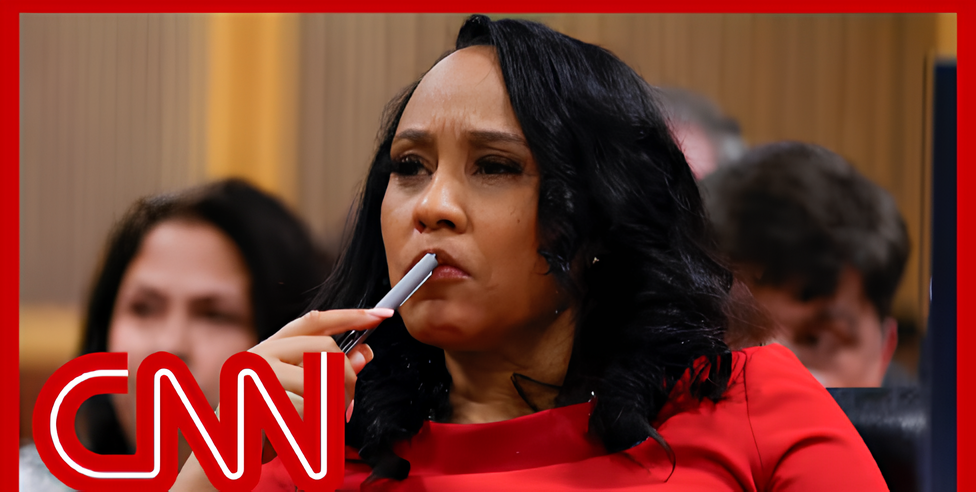Background of the Legal Case Involving Fani Willis
Fani Willis’ Prosecution of Trump
Fulton County District Attorney Fani Willis took center stage in one of the most high-profile legal battles involving former President Donald Trump. Accusations of election interference led to a sweeping indictment against Trump and 18 co-defendants, with charges encompassing violations of Georgia’s Racketeer Influenced and Corrupt Organizations Act. This case drew significant media attention, with Trump himself regularly mocking and targeting Willis publicly. Moreover, the infamous mugshot of Trump, a direct result of the case, quickly became an emblematic moment that Trump capitalized on during his campaign.
Reasons for Fani Willis’ Disqualification
The legal landscape took a dramatic turn when allegations surfaced regarding Willis’s affair with Nathan Wade, a fellow prosecutor on her team. This affair raised substantial ethical concerns about the impartiality of the prosecution:
- Appearance of Impropriety: The affair led the court to express that an appearance of impropriety was apparent, suggesting that public trust in the proceedings had been compromised.
- Judicial Ruling: Following a court ruling to disqualify Willis, the Georgia appeals court emphasized that her continued involvement would detract from the integrity necessary in such a significant case.
As a result, the ruling set a precedent in holding prosecutorial conduct accountable, creating waves in the ongoing legal saga surrounding Trump.[1][2]
Analysis of the Disqualification
Conflict of Interest Concerns
The disqualification of Fani Willis raises critical conflict of interest concerns that have disrupted the already tumultuous Trump election interference case. The Georgia appeals court focused on her relationship with Nathan Wade, a top prosecutor in the case, labeling it a significant appearance of impropriety. This situation underscores several key points:
- Public Confidence: The court emphasized that any perception of bias could potentially compromise public trust in the judicial process.
- Legal Precedents: The decision draws attention to how relationships among prosecutors can influence case integrity, serving as a cautionary tale for future prosecutions.
Such conflicts can lead to biases that not only affect the individuals involved but also cast shadows over the entire legal process.
Legal Implications of Disqualification
The legal implications of this ruling are profound and multifaceted. While Willis remains disqualified from prosecuting, the case against Trump is not entirely dismissed. Here are some vital aspects to consider:
- New Prosecutor Assignment: The Prosecuting Attorneys’ Council of Georgia must now appoint a new prosecutor, which is easier said than done given the politically charged environment surrounding the case.
- Future of the Case: The ruling complicates the prosecution’s strategy, as any new prosecutor will have to grapple with the substantial evidence already presented while potentially starting from scratch in procedural matters.
The disqualification signifies a pivotal moment in the legal saga involving Trump, setting potential limits on accountability and transparency in prosecutorial actions moving forward.[3][4]
Impact on the Legal System
Precedents Set by the Disqualification
The disqualification of Fani Willis from the Trump election interference case establishes important legal precedents that could resonate for years to come. This ruling underscores the necessity of maintaining ethical standards among prosecutors, especially in high-stakes cases. Key points to consider include:
- Heightened Scrutiny: Prosecutors may face increased scrutiny regarding personal relationships that could influence their impartiality.
- Clearer Guidelines: This case may prompt legal bodies to develop clearer guidelines on conflicts of interest, providing future prosecutors with direction on maintaining ethical boundaries.
Such developments could reshape how future cases involving powerful figures are prosecuted, amplifying the importance of integrity in judicial proceedings.
Public Perception and Confidence in the Judicial Process
The recent ruling is pivotal in shaping public perception of the judicial process. By disqualifying Willis, the court aims to restore confidence in a system often criticized for perceived biases. Some aspects to highlight include:
- Restoration of Trust: This action signals to the public that the legal system is committed to fairness, reinforcing the idea that all individuals, regardless of their status, are subject to the same legal standards.
- Community Sentiment: The ongoing media scrutiny surrounding cases like Trump’s can lead to heightened skepticism among the public. The court’s ruling may help alleviate some doubts but also brings more focus on potential improprieties in legal proceedings.
Ultimately, while the ruling may impact Trump’s case, it also sets a notable precedent for judicial accountability and public trust moving forward.[5][6]
Repercussions for Future Cases
Changes in Prosecutorial Procedures
The disqualification of Fani Willis from the Trump election interference case is likely to lead to significant changes in prosecutorial procedures going forward. Some potential shifts may include:
- Enhanced Conflict of Interest Policies: Prosecutors may need to establish clearer guidelines regarding personal relationships that could affect cases.
- Increased Transparency: There may be a push for more transparent reporting of any relationships that could influence prosecutorial decisions, ensuring public trust is maintained.
These procedural changes could establish a new norm, highlighting the importance of ethical standards in the pursuit of justice.
Lessons Learned from the Fani Willis Case
The Fani Willis case illustrates crucial lessons that could influence future prosecutions:
- Importance of Public Perception: The case emphasizes that even the appearance of impropriety can have real consequences, reinforcing the need for prosecutors to remain vigilant about their conduct.
- Judicial Accountability: The ruling demonstrates that the judiciary is willing to step in when necessary to uphold integrity, serving as a reminder to all legal professionals of their responsibilities.
By reflecting on these lessons, legal systems can evolve, striving toward fairness and transparency in prosecutorial practices.[7][8]



